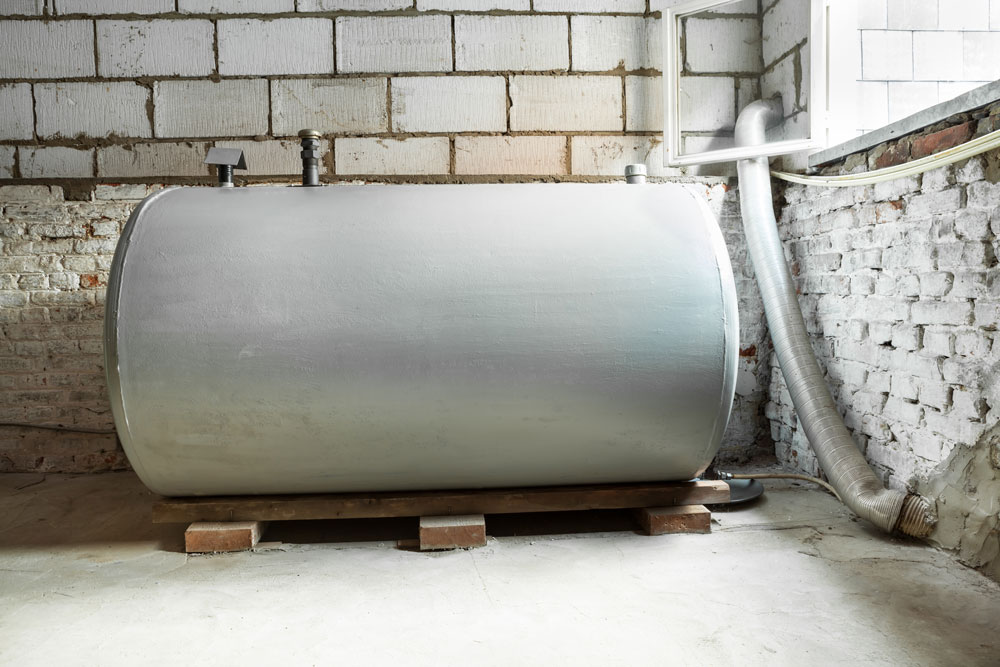How To Clean A Kerosene Spill
 CONTENTS
CONTENTS
- What causes a kerosene spill?
- The dangers of cleaning up a kerosene spill
- Why you should always bring in oil spill remediation specialists
- How to prevent kerosene spills
- Get in touch
When kerosene spills on your property, a quick, thorough response is critical to protect people's health, minimise damage to the environment, and protect your property against stains and the unpleasant odour. Only trained oil spill clean up professionals should clean spills up.
Here at ICE Cleaning, we have experienced technicians stationed across the UK who are ready to provide our oil spill clean up services. They are available 24/7, 365 days a year, and can be on site within several hours if it's an emergency.
Read on to learn more about how to clean up a kerosene spill.
What causes a kerosene spill?
Kerosene spills happen more often than you might think, and they can stem from a variety of sources. Human error is usually the most common reason for kerosene spills. This could be due to not properly securing the lid on a container or accidentally knocking over a lamp filled with kerosene.
In industrial settings, inadequate training or failure to follow procedures correctly also leads to accidental releases. Regular training and adherence to safety protocols are crucial in minimising these risks.
Poorly maintained equipment may also leak kerosene. Containers may corrode over time, valves might fail, or hoses could rupture if they are not checked regularly and kept in good condition.
The importance of routine maintenance cannot be overstated. Changing the filter on your heating oil tank, for example, significantly reduces the chances of equipment-related oil leaks.
Even natural disasters can cause spills. Adverse weather, floods, and earthquakes have the potential to damage storage tanks or transport vehicles carrying kerosene, leading to unintentional releases into the environment.
The dangers of cleaning up a kerosene spill
Heating oil leaks are not just messy; they are hazardous. Touching it might irritate your skin or even cause dermatitis. Inhaling its vapours might cause respiratory issues and dizziness, and prolonged exposure can affect your central nervous system.
Trying to clean up a heating oil spill yourself brings you in close contact with the harmful oil. Without the right personal protective equipment, you will be highly likely to touch it or inhale its harmful fumes.
Like all kinds of oil, it is very difficult to clean up, too. You need specialist cleaning equipment and techniques, or you will allow the oil to spread further and deeper into surfaces.
You may make the situation worse so when professional remediation efforts are required, they will be more extensive.
Disposing of the hazardous waste also requires specialist knowledge, as well. The disposal process is governed by strict regulations and fraught with environmental risks. Washing the oil down a drain, for example, could pollute the water supply and affect the local ecosystems. You can learn more about kerosene and the dangers associated with it here.
Why you should always bring in oil spill remediation specialists
Professional cleaners have undergone extensive training to handle hazardous materials like kerosene. They know exactly how to tackle spills without causing harm to themselves or others around them.
Moreover, they are equipped with the specialised equipment required for an efficient, thorough clean up. Their approach will far exceed what you can achieve with household cleaning supplies.
They will also know how to tackle environmental spills - spills on land or soil, or in water. They can minimise pollution, remove all traces of the oil from the affected land including soil and water, and restore the area back to its previous condition. You can learn more about how oil spills affect the environment in this blog.
These professionals also know how to correctly dispose of hazardous waste, preventing any further environmental impact.
Oil spill remediation specialists come prepared with PPE and follow strict safety protocols to minimise risks to their health during clean up operations, as well.
How to prevent kerosene spills
Store kerosene in approved containers
Kerosene should always be stored in containers that are specifically designed for flammable liquids. These containers not only reduce the risk of leaks but also help maintain the quality of the kerosene. Most hardware stores sell them, and they are usually labelled as suitable for flammable liquids like kerosene or petrol.
Maintain equipment regularly
If you use equipment that runs on kerosene, regular maintenance is key to preventing spills. This includes checking for any signs of wear and tear on hoses and connections. A routine check might reveal minor issues before they turn into major problems.
Use a funnel while pouring kerosene
A simple plastic or metal funnel will direct the flow of liquid to where it needs to go. Funnels are especially useful when transferring kerosene into heaters or lamps, or from one vessel to another.
Educate everyone that handles or uses kerosene
Awareness of safe handling practices is crucial in preventing accidents and spills. They should know how to correctly stow kerosene, use funnels for transfers, and manage spills should they occur. You can learn more about the best ways to prevent oil spills in commercial and industrial settings in this blog.
Get in touch
Our oil spill cleaning specialists have many years of experience cleaning up a range of oils including kerosene, transformer oil, petrol, and diesel on domestic, commercial, and industrial properties. They are fully qualified to clean up standard and environmental spills.
If there is a spill on your property, call our team on 0208 066 0360 to find out how we can help you.

Speak with me today,
I’m here to help
By asking you a few questions either via phone or email I can immediately provide a realistic estimation of the cost.

Why choose us?
- Cater to a wide variety of cleaning situations
- Nationwide coverage, available 24/7
- Cater to commercial and domestic clients
- Free survey provided prior to quotation
- Emergency response team
- Offer a bespoke service designed to suit all your needs
- All technicians hold professional health and safety qualifications, including BICSc, IOSH, Dewpoint Professional & Safe Contractor
We’re fully accredited
We place best practise, professional expertise and health and safety at the core of our business. We’re fully compliant with all legal obligations. You can view a list of our accreditations below, or visit our Health & Safety page for more information.











-RGB-small.1707319151.jpg)




















